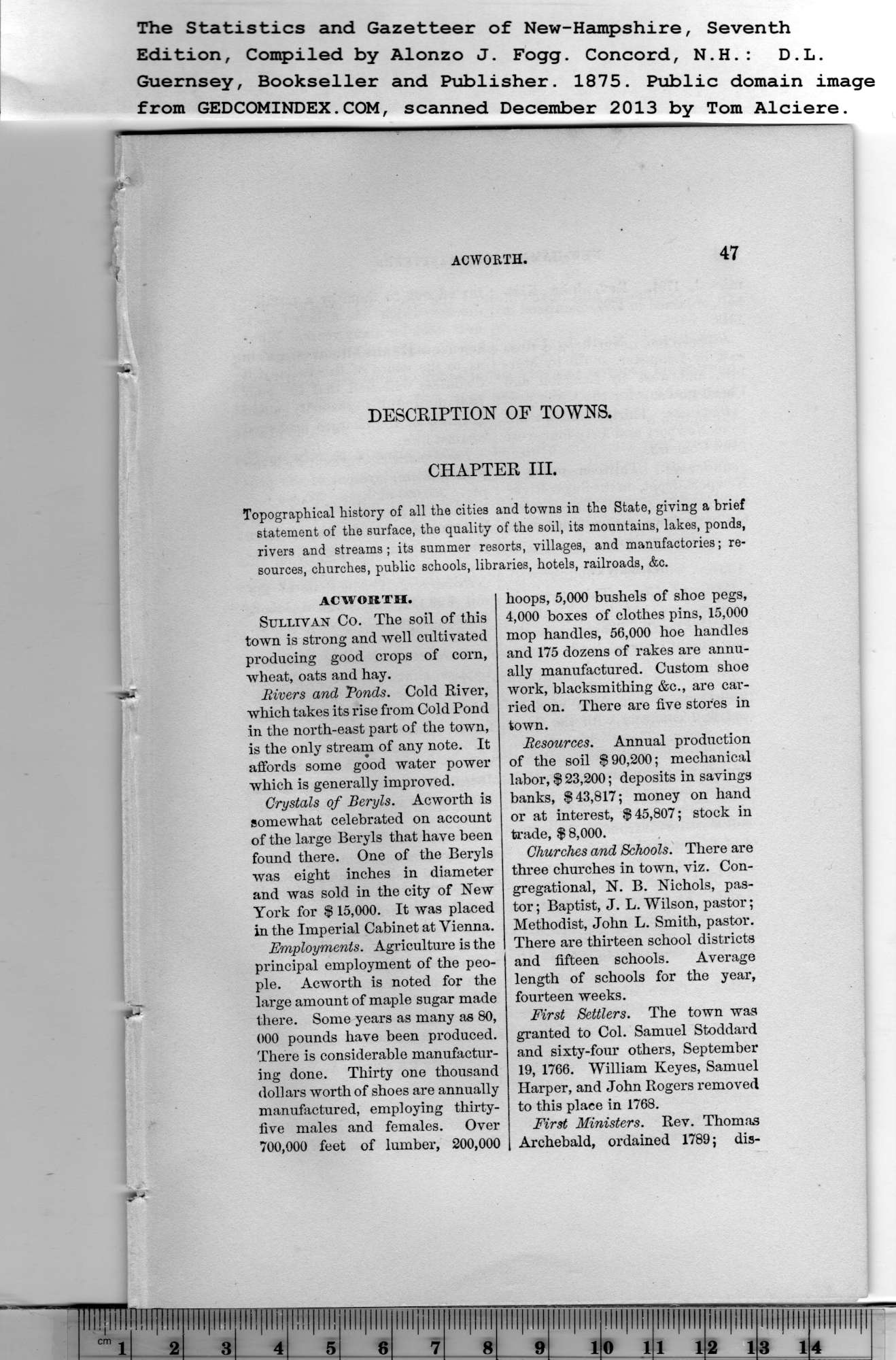|
ACWORXH.
Sullivan Co. The soil of this
town is strong and well cultivated
producing good crops of corn,
wheat, oats and hay.
Rivers and Ponds. Cold River,
which takes its rise from Cold Pond
in the north-east part of the town,
is the only stream of any note. It
affords some good water power
which is generally improved.
Crystals of Beryls. Acworth is
somewhat celebrated on account
of the large Beryls that have been
found there. One of the Beryls
was eight inches in diameter
and was sold in the city of New
York for $ 15,000. It was placed
in the Imperial Cabinet at Vienna.
Employments. Agriculture is the
principal employment of the peo-
ple. Acworth is noted for the
large amount of maple sugar made
there. Some years as many as 80,
000 pounds have been produced.
There is considerable manufactur-
ing done. Thirty one thousand
dollars worth of shoes are annually
manufactured, employing thirty-
five males and females. Over |
700,000 feet of lumber, 200,000
hoops, 5,000 bushels of shoe pegs,
4,000 boxes of clothes pins, 15,000
mop handles, 56,000 hoe handles
and 175 dozens of rakes are annu-
ally manufactured. Custom shoe
work, blacksmithing &c., are car-
ried on. There are five stores in
town.
Resources. Annual production
of the soil $90,200; mechanical
labor, $ 23,200; deposits in savings
banks, $43,817; money on hand
or at interest, $ 45,807; stock in
trade, $ 8,000.
Churches and Schools. There are
three churches in town, viz. Con-
gregational, N. B. Nichols, pas-
tor; Baptist, J. L. Wilson, pastor;
Methodist, John L. Smith, pastor.
There are thirteen school districts
and fifteen schools. Average
length of schools for the year,
fourteen weeks.
First Settlers. The town was
granted to Col. Samuel Stoddard
and sixty-four others, September
19, 1766. William Keyes, Samuel
Harper, and John Rogers removed
to this place in 1768.
First Ministers. Rev. Thomas
Archebald, ordained 1789; dis- |
